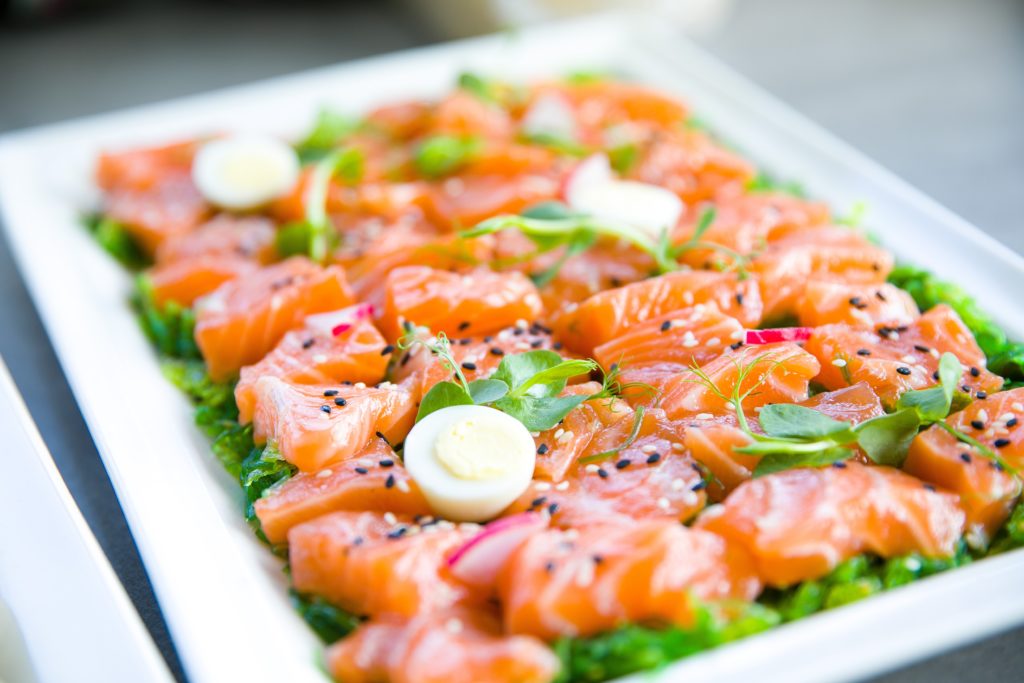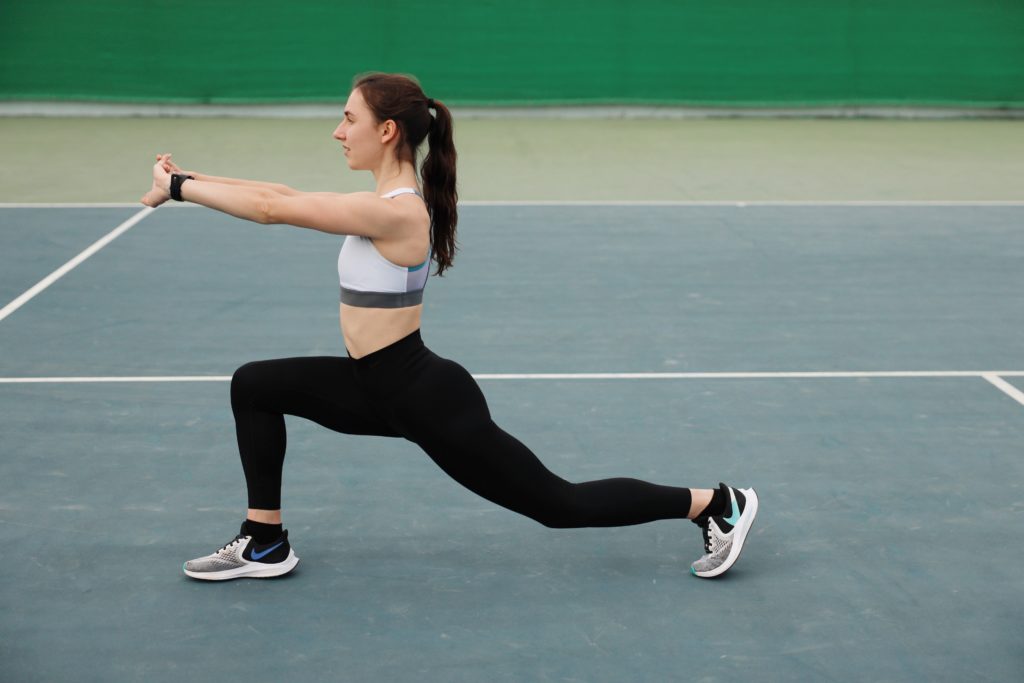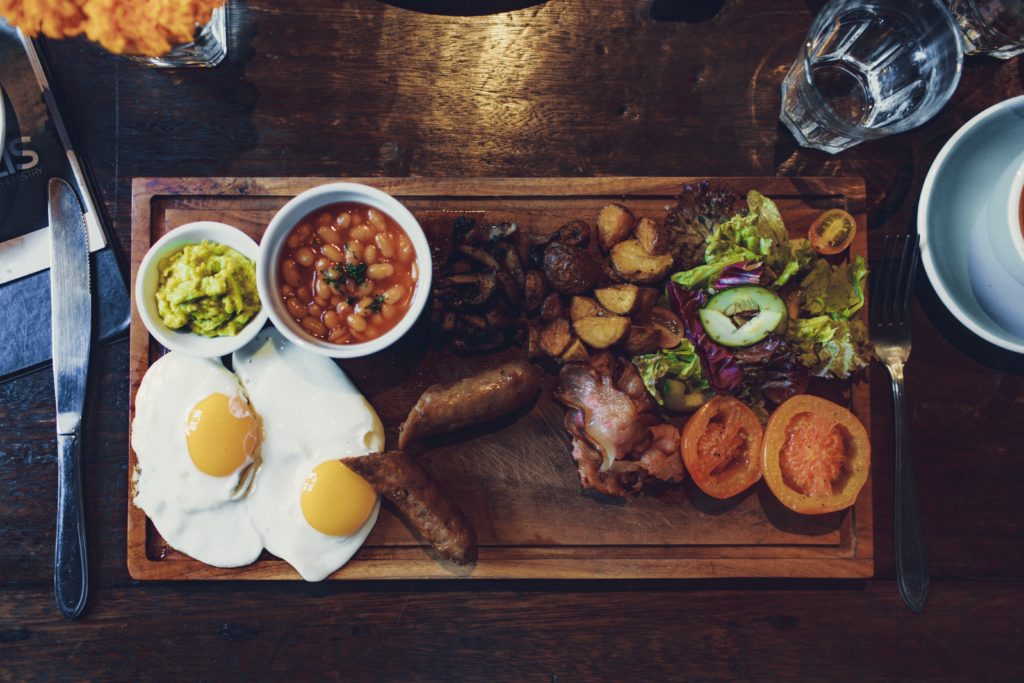Foods That Assist in Recovery After Working Out
There are many foods that can help with recovery after a workout. Here are a few examples:
- Protein: Foods high in protein, such as chicken, fish, tofu, and beans, can help repair and rebuild muscle tissue.
- Carbohydrates: Carbohydrates are an important source of energy, and they can help replenish glycogen stores that are depleted during exercise. Good sources of carbohydrates include fruit, whole grains, and potatoes.
- Anti-inflammatory foods: Some foods, such as berries, leafy greens, and fatty fish, have anti-inflammatory properties that can help reduce muscle soreness and inflammation.
- Electrolytes: Electrolytes, such as sodium, potassium, and magnesium, are important for maintaining fluid balance in the body. They can be found in foods like coconut water, bananas, and leafy greens.

It’s also important to stay hydrated by drinking plenty of water after a workout. This can help flush out toxins and speed up recovery.
What Causes Soreness in the Body After a Workout
Soreness after a workout is usually caused by microscopic tears in the muscles that occur during exercise. When you exercise, your muscles are subjected to stress, and this can cause small tears in the muscle fibers. This is a normal part of the muscle-building process, and it’s what leads to muscle growth and increased strength. The soreness you feel after a workout is a result of the inflammation that occurs as your body repairs these muscle fibers.
There are a few things you can do to help reduce muscle soreness after a workout:
- Warm up before you exercise: Warming up before you start your workout can help loosen up your muscles and reduce the risk of injury.
- Use proper form: Using proper form during exercise can help reduce the risk of muscle strain and soreness.
- Stretch after your workout: Stretching after your workout can help reduce muscle soreness and improve flexibility.
- Get enough rest: It’s important to give your muscles time to recover after a workout. Getting enough rest can help reduce muscle soreness.
- Stay hydrated: Drinking plenty of water can help your body flush out waste products that can contribute to muscle soreness.
- Use a foam roller: Using a foam roller to massage your muscles after a workout can help reduce muscle soreness and improve recovery.
- Take an over-the-counter pain reliever: If your muscle soreness is particularly severe, you may find relief with an over-the-counter pain reliever like acetaminophen or ibuprofen.

Foods to Eat to Ease the Soreness and Aid the Body After Working Out
Eating certain foods can help reduce muscle soreness and promote muscle recovery after a workout. Here are some options to consider:
- Protein-rich foods: Consuming protein after a workout can help repair and rebuild muscle tissue. Good sources of protein include chicken, fish, eggs, dairy products, and beans.
- Complex carbohydrates: Carbohydrates can help replenish glycogen stores in the muscles, which can be depleted after a workout. Good sources of complex carbs include whole grains, starchy vegetables, and fruits.
- Anti-inflammatory foods: Inflammation can contribute to muscle soreness. Foods with anti-inflammatory properties, such as turmeric, ginger, and berries, may help reduce inflammation and muscle soreness.
- Hydration: Staying hydrated is important for muscle recovery. Be sure to drink plenty of water and electrolyte-rich fluids, such as sports drinks, after a workout.

It’s also a good idea to eat a well-balanced diet that includes a variety of nutrients to support muscle recovery and overall health.
What is a Well-Balanced Diet
A well-balanced diet is one that includes a variety of different types of foods in the right proportions, and that provides all of the nutrients that the body needs to function properly. A well-balanced diet should include:
- Plenty of fruits and vegetables, which are high in vitamins, minerals, and other nutrients, as well as dietary fiber.
- Adequate amounts of protein, which is essential for the growth, repair, and maintenance of tissues in the body.
- A moderate amount of fats, which provide energy and help the body absorb certain vitamins.
- Adequate amounts of carbohydrates, which are the body’s main source of energy.
- Limited amounts of added sugars, salt, and unhealthy fats, such as trans fats and saturated fats.
To maintain a well-balanced diet, it is important to choose a variety of different foods from all of the different food groups, and to pay attention to portion sizes. It is also important to drink plenty of water, as well as to get regular physical activity.
An Example of a Well-Balanced Diet Plan
Here is an example of a well-balanced diet plan for an adult:
- Breakfast: Oatmeal with nuts, seeds, and fruit; or an egg white omelette with spinach, mushrooms, and tomato, served with whole grain toast and a glass of orange juice
- Lunch: Grilled chicken salad with mixed greens, cherry tomatoes, carrots, and avocado, dressed with olive oil and vinegar; or a whole grain turkey and cheese wrap with lettuce, tomato, and hummus, served with a side of fruit
- Dinner: Baked salmon with roasted vegetables and quinoa; or lentil soup with a mixed greens salad and whole grain bread
- Snacks: Apple slices with almond butter; or Greek yogurt with berries and a handful of almonds
This meal plan includes a variety of different types of foods from all of the different food groups, and provides all of the nutrients that the body needs to function properly. It is important to note that this is just one example of a well-balanced diet, and that individual needs may vary depending on age, sex, weight, and activity level. It is always a good idea to consult with a healthcare professional or a registered dietitian to determine the best diet plan for your individual needs.
Benefits of Eating the Correct Foods to Recover After Working Out
In conclusion eating the right foods after a workout can help your body recover and repair itself. Some benefits of eating the correct foods after working out include:
- Improved muscle recovery: Consuming protein after a workout can help repair and rebuild your muscles, which can be damaged during physical activity.
- Replenished energy stores: Carbohydrates can help replenish your body’s glycogen stores, which are used for energy during exercise.
- Improved immune function: Exercise can temporarily suppress the immune system, so it’s important to eat a balanced diet that includes nutrients like vitamins C and E, which support immune function.
- Reduced muscle soreness: Consuming foods that are high in anti-inflammatory compounds, such as omega-3 fatty acids and turmeric, may help reduce muscle soreness.
It’s important to choose foods that are high in nutrients and will help your body recover effectively. Some good options include protein-rich foods like chicken or tofu, complex carbohydrates like sweet potatoes or quinoa, and foods high in anti-inflammatory compounds like fatty fish or nuts.